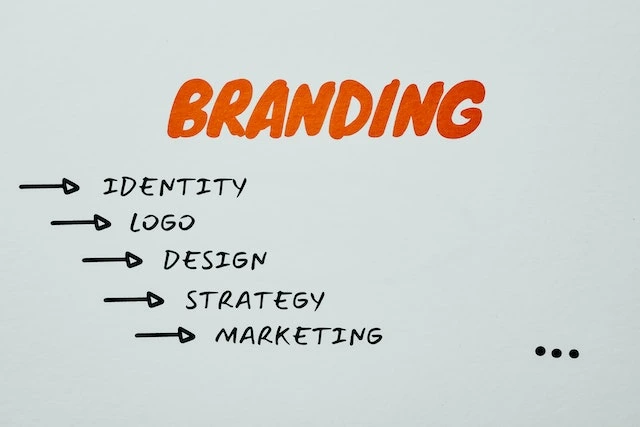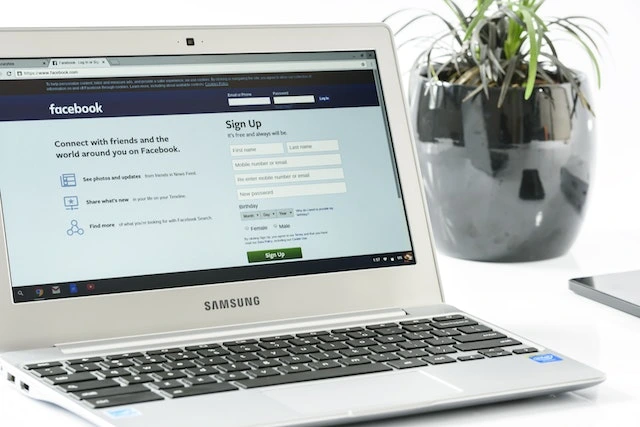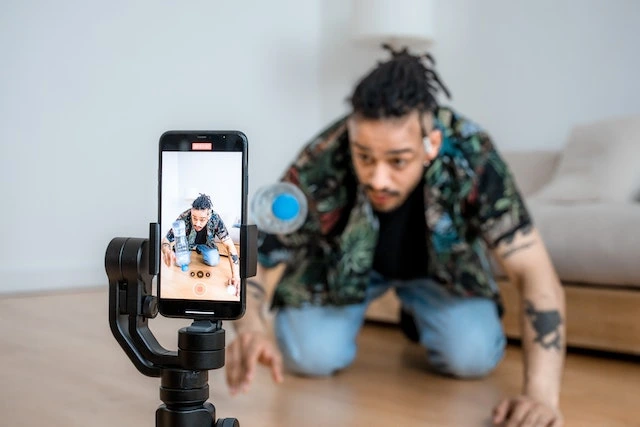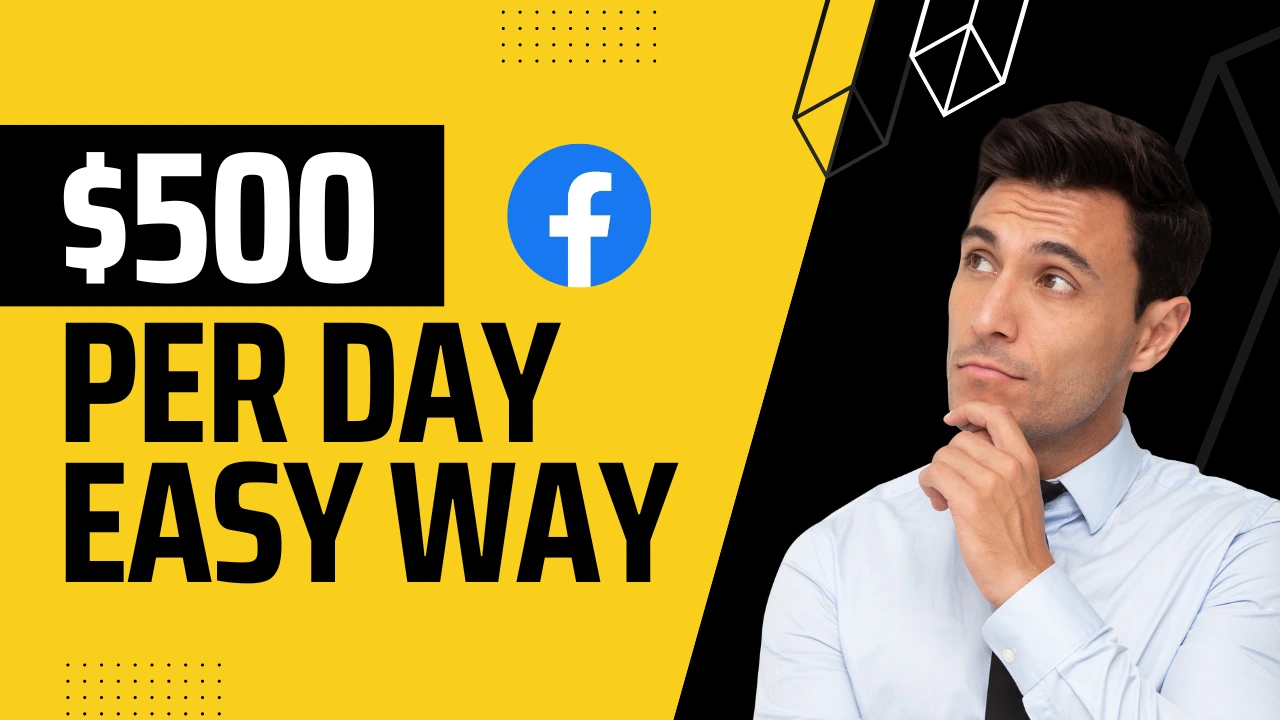How To Earn Money on Facebook $500 Everyday: There are a few potential ways you can earn money on Facebook, but it’s important to keep in mind that earning money through the platform isn’t always easy or guaranteed. Here are a few options you might consider:

- Sell products or services through a Facebook business page: If you have a product or service to sell, you can create a business page on Facebook and use the platform to promote your offerings and make sales. You can also use Facebook’s e-commerce tools, such as Facebook Shop, to sell products directly through the platform.
- Monetize your Facebook content: If you have a large following on Facebook and create content that people find valuable, you may be able to monetize your content through the Facebook Creator program. This allows you to earn money through sponsorships, brand partnerships, and other forms of advertising.
- Sell your Facebook page: If you have a popular Facebook page with a large following, you may be able to sell the page to someone else who is interested in taking over the page and monetizing it.

It’s important to keep in mind that earning $500 per day on Facebook is a lofty goal, and it may take time and effort to build up a following and monetize your content or products. Additionally, it’s important to follow Facebook’s policies and guidelines when using the platform to earn money.
Affiliate marketing
Affiliate marketing is a performance-based marketing strategy in which a business rewards affiliates for each customer brought to the business by the affiliate’s own marketing efforts. The affiliates, also known as “publishers,” are typically website owners or other online marketers who promote the business’s products or services and earn a commission for each sale or other action taken as a result of their promotion.
There are several key components to a successful affiliate marketing program:

- Merchants or advertisers: These are the businesses that offer affiliate programs and pay affiliates for referring customers.
- Affiliates or publishers: These are the individuals or businesses that promote the merchant’s products or services and earn a commission for each sale or other action taken as a result of their promotion.
- Affiliate networks: These are third-party companies that connect merchants and affiliates and help facilitate the tracking and payment of commissions.
- Tracking and reporting: To accurately track and pay commissions, affiliates and merchants need a system in place to track clicks, sales, and other actions taken as a result of the affiliate’s promotion. This is typically done through the use of tracking links and cookies.

There are several types of affiliate marketing programs, including:
- Pay-per-sale: In this type of program, affiliates earn a commission for each sale made as a result of their promotion.
- Pay-per-click: In this type of program, affiliates earn a commission for each click on a link leading to the merchant’s website.
- Pay-per-lead: In this type of program, affiliates earn a commission for each lead generated as a result of their promotion, such as a form submission or email sign-up.
- Pay-per-install: In this type of program, affiliates earn a commission for each installation of a software application resulting from their promotion.
To succeed as an affiliate marketer, it’s important to choose a niche in which you have a genuine interest and expertise, as this will make it easier for you to create content and promote products that your audience will find valuable. It’s also important to choose merchants or advertisers that offer products or services that are relevant to your audience and that pay fair commissions.
In addition to promoting products and services, affiliates can also earn money through the use of affiliate marketing tools and resources, such as banner ads, text links, and coupon codes. These tools can help affiliates effectively promote the merchant’s products and drive traffic to their website.

Overall, affiliate marketing is a great way for website owners and other online marketers to earn passive income by promoting products and services that they believe in. By building a large and engaged audience and choosing high-quality merchants and advertisers, affiliates can build a successful and lucrative business through affiliate marketing.
Facebook Marketplace
Facebook Marketplace is a feature on the Facebook platform that allows users to buy and sell items with people in their local area. It is a platform for peer-to-peer sales, similar to other online marketplaces such as eBay or Craigslist.

To use Facebook Marketplace, users must first log in to their Facebook account and access the Marketplace tab, which is typically located in the left-hand menu of the Facebook app or on the right-hand side of the Facebook website. From the Marketplace homepage, users can browse listings in their local area or use the search function to find specific items.

Users can list items for sale on Facebook Marketplace by clicking the “Sell Something” button and entering details about the item, including its name, price, and location. Users can also add photos of the item and select a category for the listing. Once the listing is published, it will appear in the Marketplace for other users to view and potentially purchase.
Users can purchase items on Facebook Marketplace by contacting the seller through the platform and arranging payment and delivery. Facebook does not handle payments or facilitate shipping, so it is up to the buyer and seller to come to an agreement on these details.

In addition to buying and selling items, users can also browse and shop for items from local businesses on Facebook Marketplace. Businesses can create a storefront on the platform and list their products for sale, similar to how individual users can list items for sale.
Overall, Facebook Marketplace is a convenient way for users to buy and sell items with others in their local area, as well as shop from local businesses. It is a useful tool for finding and buying secondhand items, as well as discovering new products and businesses in the community.

Facebook Live
Facebook Live is a feature on the Facebook platform that allows users to stream live video to their friends and followers in real-time. It is a way for users to connect with their audience and share their experiences as they happen, whether it’s a live event, a personal update, or a broadcast of a sporting event or television show.

To use Facebook Live, users must first have a Facebook account and access to a device with a camera and microphone, such as a smartphone or computer. Users can then go to the Facebook app or website and click on the “Live Video” button, which is typically located in the status update box. From there, users can select their privacy settings, choose an audience for their live video, and give their broadcast a title.

Once the user begins streaming, their followers will be able to watch the live video in real-time and interact with the user through comments and reactions. Users can also invite friends to join the live video as co-hosts or guests.
Facebook Live offers a number of options for users to customize their broadcasts, including the ability to add filters, use the front or rear camera on their device, and share their location. Users can also schedule a live video in advance, allowing them to promote the event to their followers and build anticipation.
Overall, Facebook Live is a useful tool for users to connect with their audience and share real-time experiences and updates with their friends and followers. It is a popular way for users to share personal updates, live events, and broadcasts of sporting events and television shows.
Sponsored content on your Facebook page
There are a few different ways you can earn money through sponsored content on your Facebook page:
- Partner with brands or businesses to create sponsored content: If you have a large following on your Facebook page and create content that your audience finds valuable, you may be able to partner with brands or businesses to create sponsored content. This can include sponsored posts, sponsored live videos, or sponsored stories. You can reach out to brands directly or work with a company that connects brands with influencers to negotiate a fee for creating sponsored content.
- Join the Facebook Creator program: If you have a large following on your Facebook page and create content that your audience finds valuable, you may be able to join the Facebook Creator program. This program allows you to monetize your content through sponsored content, brand partnerships, and other forms of advertising. To join the program, you’ll need to meet certain eligibility requirements and apply through the Facebook Creator website.
- Sell advertising space on your Facebook page: If you have a large following on your Facebook page, you may be able to sell advertising space on your page to brands or businesses. This can include sponsored posts, banner ads, or other forms of advertising. You can reach out to brands directly or work with a company that connects brands with influencers to negotiate a fee for advertising on your page.
It’s important to keep in mind that earning money through sponsored content on your Facebook page may not be easy or guaranteed. It may take time and effort to build up a large following and establish yourself as a trusted influencer. Additionally, it’s important to follow Facebook’s policies and guidelines when using the platform to earn money.
Selling Digital products
Selling digital products is the process of selling digital goods or services online, rather than physical products. Some examples of digital products include:

- Ebooks: Digital versions of books that can be downloaded and read on electronic devices such as e-readers or smartphones.
- Courses: Online learning programs that can be accessed through a website or app and typically include video lectures, written materials, and other resources.
- Software: Programs that can be downloaded and installed on a computer or device.
- Music or videos: Digital versions of songs, albums, or videos that can be downloaded or streamed.
- Photos or graphics: Digital images or graphics that can be downloaded and used for various purposes.
There are several advantages to selling digital products:
- No inventory or storage: Digital products don’t take up physical space and don’t require storage or fulfillment, which can reduce costs and make it easier to scale your business.
- Instant delivery: Digital products can be delivered instantly to customers, so there is no need to worry about shipping or handling.
- Potential for passive income: Digital products can be sold on an ongoing basis, potentially generating passive income for the seller.
To sell digital products, you’ll need to set up an online platform, such as a website or online store, and create a process for delivering the product to customers. This might involve setting up a shopping cart and payment system, as well as creating a system for delivering the product to customers, such as through a download link or access to a secure online portal.
It’s important to carefully consider how you will price and market your digital products. You’ll also need to consider how you will handle customer service and support, as well as how you will handle any issues that may arise, such as refunds or technical problems.
Overall, selling digital products can be a lucrative and flexible way to earn money online, provided you have a product that meets a demand and are able to effectively market and sell it to your target audience.
